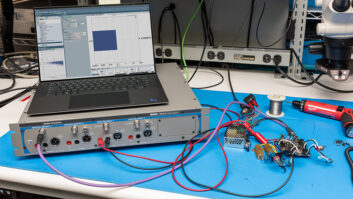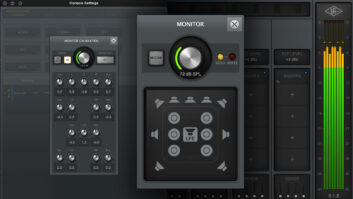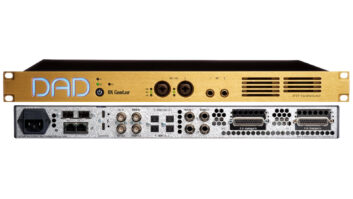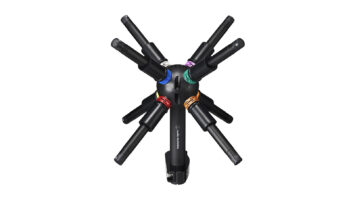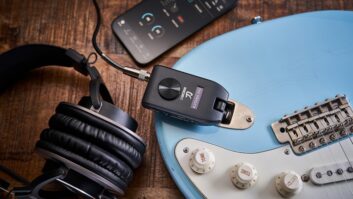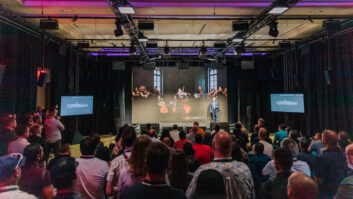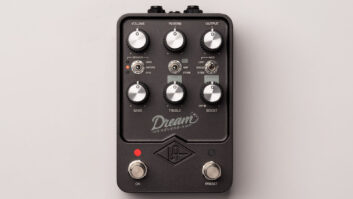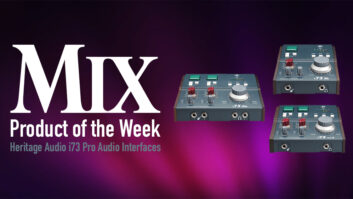LOS ANGELES, CA, November 29, 2023 — For more than four decades, guitarist Tim Pierce has built an enviable resume as one of the recording industry’s most experienced and therefore in-demand session players. His versatile skill set as a player and impeccable taste in guitar tone can be heard on key recordings by artists such as Crowded House, The Goo Goo Dolls, Bon Jovi, Phil Collins, and Toy Matinee among others. Pierce has more recently become a fixture on YouTube with his Guitar Masterclass video series as well as ongoing educational content that dissects the ins and outs of playing technique and recorded guitar sounds. As part of his ongoing tonal quest, Pierce has recently begun to favor the Mojave Audio MA-37 large diaphragm tube condenser microphone as a favored ‘secret weapon’ for his distorted guitar sounds.
Watch an interview with Tim Pierce about the Mojave Audio MA-37 here:
[https://www.youtube.com/watch?v=k8MKU35WPL0]
The guitar stays in the picture
A versatile stylist with a particular talent for layered guitar orchestration, Pierce has become an expert in finding the ‘special sauce’ guitar parts that can elevate a track to the next level. With the entire history of recorded electric guitar available with a push of a button in today’s production environments, often what will make or break a track is the right combination of flavors that make a song ‘blossom’. “It’s always been about the collaboration and finding the thing that lights the artist up,” he explained. “You really do have the entire lineage of the electric guitar at your disposal these days, so often it’s less about finding a brand new sound as it is finding a fresh approach to one that will make a track ‘pop’.”
“It’s been really gratifying to see the guitar make its way back into the picture of popular music within the past few years, and in that resurgence it’s fun to find new ways to make it fit into music.”
Despite being extremely well-versed in digital plugins and ‘in the box’ production techniques, Pierce is still a devotee of using real guitar amplifiers and old-school miking techniques to get the sounds that he wants. Given this he has often found himself seeking out tools that will bring forth the warmth and fullness that can sweeten the overall sound of the track and combat the occasional harshness still inherent in digital sounds. “In the old days analog tape would sweeten distorted guitar sounds and make them warmer and friendlier to the ear,” he said. “Being able to take that edge off was often the trick that would make something ‘radio friendly’, so my ear naturally gravitates to those sounds and finding ways of making them happen.”
“For a long time, I have been doing that with Sony C-37As — a trick I learned from Rob Cavallo — so I was thrilled when I came across the Mojave MA-37.”
Warmth, width, and clarity
Pierce works out of his extremely well-equipped home studio and has an enviable collection of vintage and modern guitar amps that give him any sound that he needs for his session and educational work. Recording amps out of what he has dubbed ‘the vault’ in his basement, he immediately found himself drawn to the inherent qualities of the MA-37. “The first thing you notice is how much depth and scope it adds to the sound of your amplifier — suddenly the tone knobs on your amp actually work and you have this width you didn’t have before,” he explained. “What you get is this warm, buttery sweetening of the sound that suits a cranked amp perfectly, as well as this wonderful clarity in the midrange that makes you sit in the mix perfectly.”
“Everything immediately just sounds better, and it’s a way of changing up that punchy ‘midrange fist’ thing that standard guitar microphone choices might give you.”
The ability to bring fresh twists to familiar sounds is something Pierce is very familiar with, and he includes different microphone choices often in that equation. As a player who is fascinated by creating interlocking guitar parts designed to strategically lift key moments in a track, he is very conscious of how best to craft these layers sonically. “It’s very important to change up the sonic palette when you are working on a track with a lot of layers,” he said. “What ends up happening is you have frequencies that stack on top of each other to the point of canceling each other out. To keep things interesting and sounding wider, changing microphones up from the standard SM57 can make a big difference.”
“Going from that to the MA-37 is almost like it’s a different amplifier, so you’ll get that specific sound of the 57 that everyone knows along with all of this beautiful width and detail from the MA-37 that fills out the sound in a very pleasing way.”
As the worlds of digital music production and the electric guitar become more intertwined, Pierce says that we’ve entered a period where it’s truly the ‘best of both worlds’ for guitar players looking for convenience as well as great guitar sounds. Whether one wants the broad strokes of a classic tone from a digital modeler, or a modern analog device that suits ears of the most discerning record producer, the options have truly become endless. “It’s a really incredible time to be playing electric guitar,” he said. “In my case, Mojave took my favorite guitar microphone of all time and not only improved it, but made it available for anyone who wants to get it without having to pay vintage prices.”
“It’s a rare thing that you can beat one of the classics, but Mojave has done it with the MA-37.”
For more information about Tim Pierce, please visit: https://www.timpierce.com/
For more information about Mojave Audio, please visi:t http://www.mojaveaudio.com/About Mojave Audio
Mojave Audio was founded by Technical Grammy Award winning David Royer, widely known for his ribbon microphone designs with Royer Labs. Mojave Audio makes world-class microphones for Artists and Engineers who are passionate about their sound.
